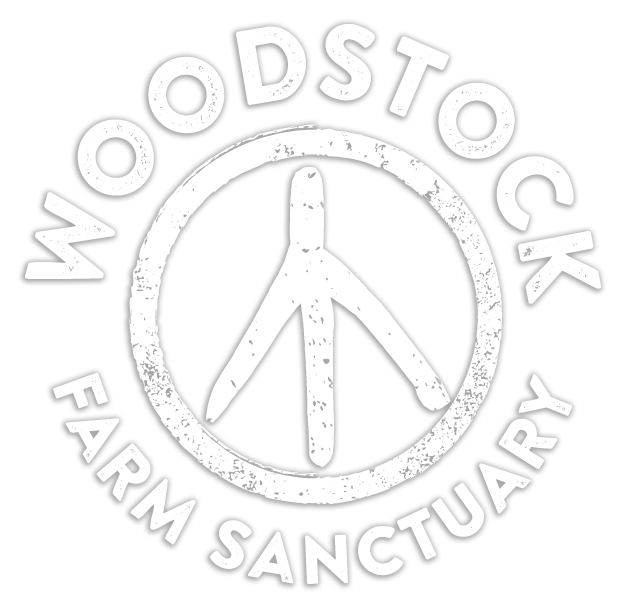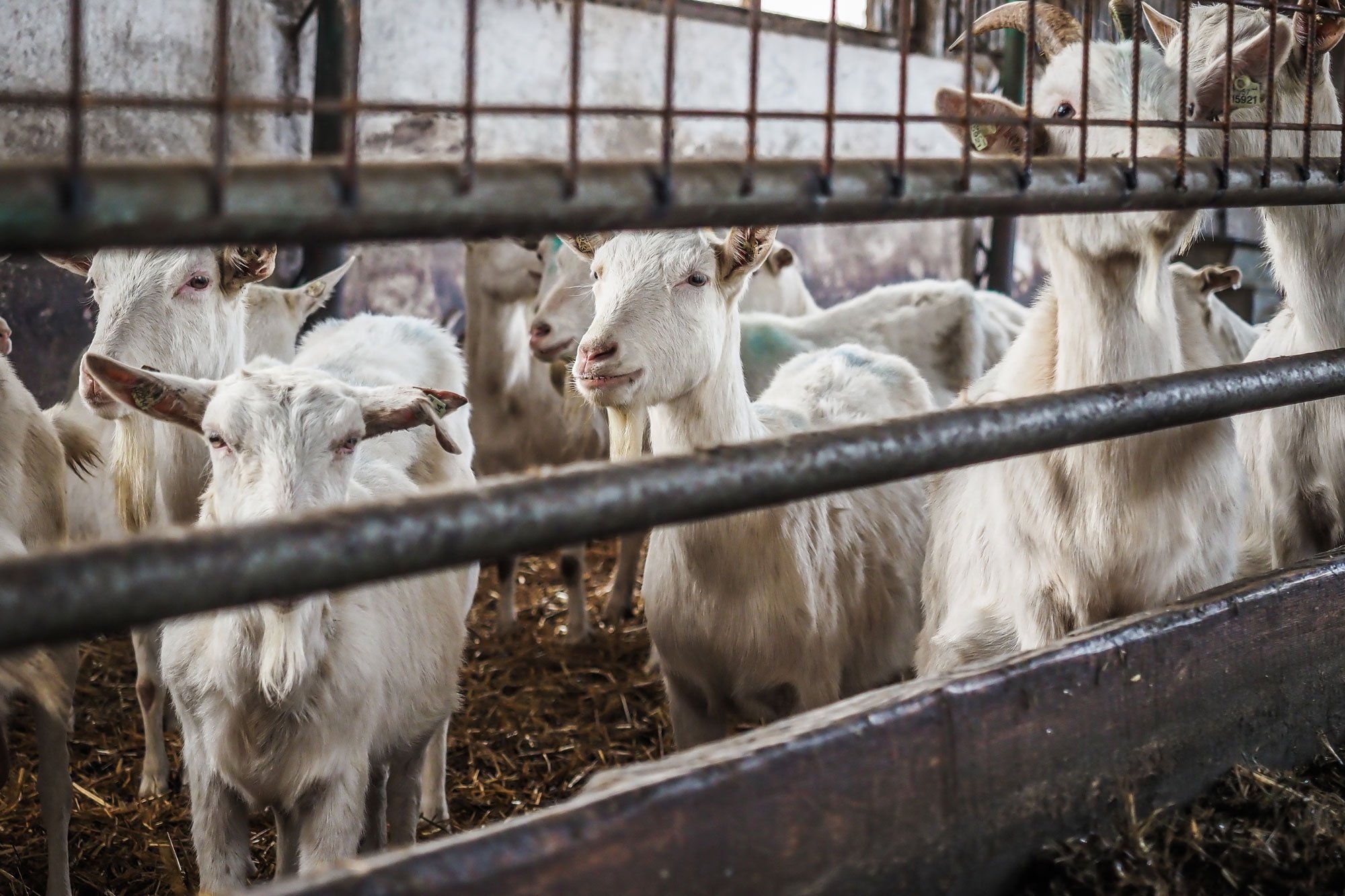Goat Dairy Awareness
During June, we’ve talked a lot online about National Dairy Month - this month is and always has been a ploy by dairy companies to get consumers to purchase more dairy products. You may current be seeing posters, imagery, and deals on dairy products at your local grocery store right now. But did you know that there’s a week in June dedicated to “Dairy Goat Awareness”?
Dairy goats are often overlooked when it comes to activism around dairy farming. It’s easy to access information on what happens to cows at dairy farms, but less people realize that goats are subjected to the same wrongs.
Even though it’s not the main item on store shelves, goat’s milk is still consumed and used by many people in the US. There are thousands of goats in dairy farms in this country—and a few of those goats made it to safety here at Woodstock Sanctuary.
In 2015, Kellen, Tara, Sabrina, Ann, Debbie, and Patricia were all seized by local authorities who found the goats sick, starving, and neglected at a dairy farm. Small farms with little oversight frequently neglect their animals medically, and that’s only one facet of the mistreatment goats face in dairy. The entire process is suffering for them, regardless of how “nicely” they’re treated.
Goats go through the same exploitation on goat dairy farms that cows do on cow dairy farms. They are impregnated, have babies that are taken away from them, the male babies like Kellen are disposed of, and then the goats who are milked are slaughtered once their “production” declines. Goat milk is seen in the US as a speciality, boutique, “humane” product, but it’s not humane for the goats involved. Ditching dairy means ditching goat’s milk too. Tell your friends about goats here at Woodstock like Kellen if you hear them wanting to consume goat milk as a “better,” “healthier,” or “more humane” product. Let’s remember goats in our activism and stick up for them in the same way we do cows.


